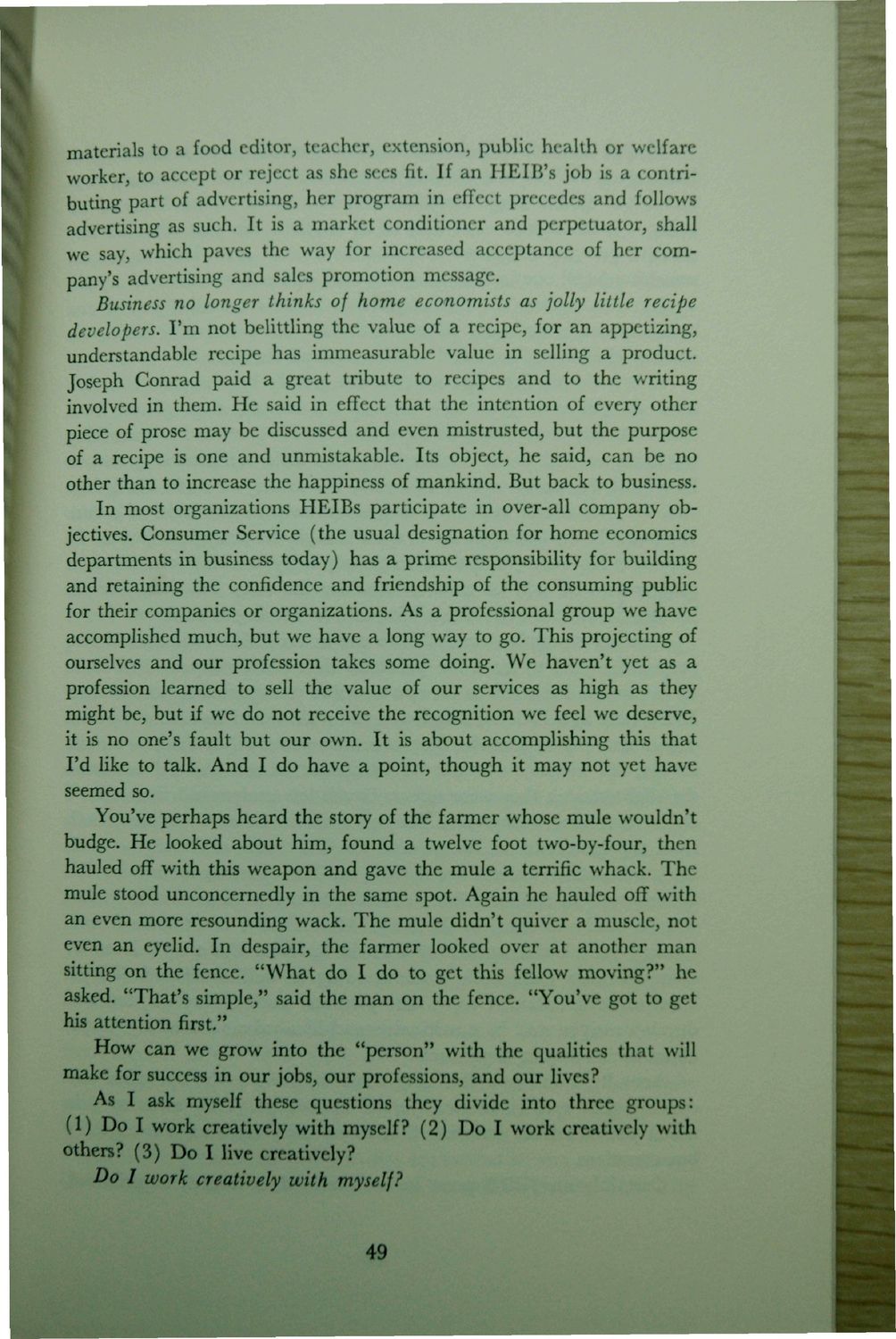| |
| |
Caption: Dedication - Home Economics - Challenge of Home Economics
This is a reduced-resolution page image for fast online browsing.

EXTRACTED TEXT FROM PAGE:
materials to a food editor, teacher, extension, public health or welfare worker, to accept or reject as she sees fit. If an HEIB's job is a contributing part of advertising, her program in effect precedes and follows advertising as such. It is a market conditioner and pcrpetuator, shall we say, which paves the way for increased acceptance of her company's advertising and sales promotion message. Business no longer thinks of home economists as jolly little recipe developers. I'm not belittling the value of a recipe, for an appetizing, understandable recipe has immeasurable value in selling a product. Joseph Conrad paid a great tribute to recipes and to the writing involved in them. He said in effect that the intention of every other piece of prose may be discussed and even mistrusted, but the purpose of a recipe is one and unmistakable. Its object, he said, can be no other than to increase the happiness of mankind. But back to business. In most organizations HEIBs participate in over-all company objectives. Consumer Service (the usual designation for home economics departments in business today) has a prime responsibility for building and retaining the confidence and friendship of the consuming public for their companies or organizations. As a professional group we have accomplished much, but we have a long way to go. This projecting of ourselves and our profession takes some doing. We haven't yet as a profession learned to sell the value of our services as high as they might be, but if we do not receive the recognition we feel we deserve, it is no one's fault but our own. It is about accomplishing this that I'd like to talk. And I do have a point, though it may not yet have seemed so. You've perhaps heard the story of the fanner whose mule wouldn't budge. He looked about him, found a twelve foot two-by-four, then hauled off with this weapon and gave the mule a terrific whack. The mule stood unconcernedly in the same spot. Again he hauled off with an even more resounding wack. The mule didn't quiver a muscle, not even an eyelid. In despair, the farmer looked over at another man sitting on the fence. "What do I do to get this fellow moving?" he asked. "That's simple," said the man on the fence. "You've got to get his attention first." How can we grow into the "person" with the qualities that will make for success in our jobs, our professions, and our lives? As I ask myself these questions they divide into three groups: (1) Do I work creatively with myself? (2) Do I work creatively with others? (3) Do I live creatively? Do I work creatively with myself? 49
| |